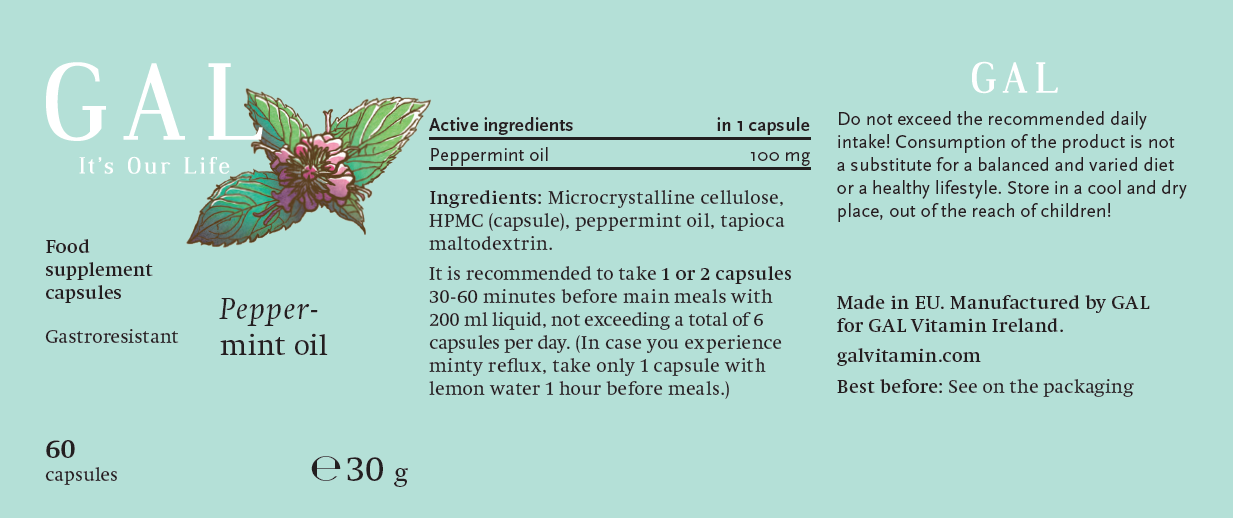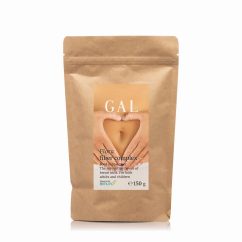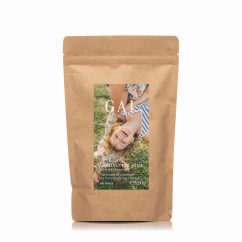
Some of the most common causes of gastrointestinal complaints are the impaired balance of the gut flora, accumulation of bacteria in the small intestine, inflammation of the intestinal mucosa, insufficient gastric acid production or the abnormal, spasmodic movement of the smooth muscles that move the guts. At the same time, symptoms include the following: Diarrhea, constipation, bloating, excessive gas production, nausea after eating, reflux (acid regurgitation), heartburn, ulcers. By delivering an appropriate dose of peppermint oil to the guts, both the above-listed causes and symptoms might be eliminated, as you may soon see it. However, delivering peppermint oil all the way to the guts is quite a challenge, especially if you want to do it in a natural way, without using any harmful artificial excipients or coating substances.
We thought that the following solution would be the most appropriate:
We powder the peppermint oil using a method borrowed from the inventory of molecular gastronomy, using tapioca maltodextrin, which is obtained from tapioca starch through a natural procedure (using enzymes) without chemical transformation. In the final step, this is mixed with microcrystalline cellulose, which, despite its scary name, simply is finely ground plant cellulose – that is, fibres. Finally, we fill it into a natural acid-resistant vegetarian capsule so the active ingredients dissolve in the stomach only in a delayed manner or not at all. Thus the capsule has time to reach the small intestine, where it dissolves, the peppermint oil “enclosed” into the above-described tapioca is released, while the indigestible cellulose fibres help moving forward so the peppermint oil can exert its effect throughout the complete intestinal tract.
The efficacy of peppermint oil filled into acid-resistant capsules that dissolve in the guts is supported by a number of human clinical studies, which found it might be useful in the following conditions:
SIBO (Small Intestine Bacterial Overgrowth)
Excess accumulation of bacteria in the small intestine. It is very common and has implications on almost every gastro-intestinal disorders. The effect of peppermint oil dissolving in the guts on SIBO is remarkable. Its effect also results from its antibacterial and biofilm breaking properties that help to restore the balance of the gut flora.
The symptoms of SIBO are the following:
• Diarrhoea and constipation
• Bloating and excessive gas production
• Nausea after eating
• Reflux and heartburn
Irritable bowel syndrome (IBS) – IBS is a condition accompanied with intestinal cramps, pain, diarrhoea and/or constipation.– Peppermint oil delivered into the intestines may be ameliorated or eliminate symptoms in itself, without any additional treatment.
Almost a dozen research studies confirmed this effect. SIBO and IBS are often present together, and it may also be possible that IBS is often caused by SIBO. Thus the possible effect of peppermint oil on IBS is not surprising at all.
GAL peppermint oil capsules provide a natural solution with the best value in Ireland.
Made in the EU
Warnings
KEEP OUT OF REACH OF CHILDREN. DO NOT EXCEED RECOMMENDED DOSE.
If you are undergoing treatment for a medical condition or if you are pregnant or lactating, please consult your medical practitioner before introducing supplementary foods to your normal routine. The dietary supplement should not be used as a substitute for a varied and balanced diet or a healthy lifestyle. Store tightly closed in a cool and dry place.
References:
1. Logan et al: The Treatment of Small Intestinal Bacterial Overgrowth
With Enteric-Coated Peppermint Oil: A Case Report. Alternative Medicine
Review Volume 7, Number 5 2002
2. Capello et al: Peppermint oil (Mintoil®) in the treatment of irritable
bowel syndrome: A prospective double-blind placebo-controlled randomized
trial. Digestive and Liver Disease 39 (2007) 530–536
3. Budzyńska et al: Antibiofilm activity of selected plant essential oils
and their major components. Pol J Microbiol. 2011;60(1):35-41.
4. Sandasi et al: The in vitro antibiofilm activity of selected culinary
herbs and medicinal plants against Listeria monocytogenes. Lett Appl
Microbiol. 2010 Jan;50(1):30-5.
5. Hawrelak et al: Essential Oils in the Treatment of Intestinal Dysbiosis:
A Preliminary in vitro Study. Altern Med Rev 2009;14(4):380-384
6. Khanna R, MacDonald JK, Levesque BG. Peppermint oil for the treatment
of irritable bowel syndrome: a systematic review and meta-analysis. J
Clin Gastroenterol. 2014 Jul;48(6):505-12.
7. Thompson A, Meah D, Ahmed N, Conniff-Jenkins R, Chileshe E, Phillips
CO, Claypole TC, Forman DW, Row PE. Comparison of the antibacterial activity
of essential oils and extracts of medicinal and culinary herbs to
investigate potential new treatments for irritable bowel syndrome. BMC
Complement Altern Med. 2013 Nov 28;13:338.

-Allergen-free
- Glutenfree
- Egg-free
- Soy allergen-free
- Dairy and lactose-free
- Free of sulfur dioxide
- Sugar-free
- GMO-free
- Vegetarian
- Vegan
- FSC paper material (CO31340)
- Packaging from carbon-neutral production
- 100% recyclable packaging
Green: The product has the described property
Red: The product does not have the described property



